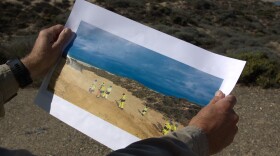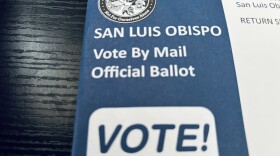Santa Barbara County officials are preparing for possible federal policy changes that could affect thousands of local immigrant patients and cost the county millions of dollars in health funding.
The Board of Supervisors reviewed a proposal Tuesday from the Public Health Department to rebalance its budget in response to a federal rule that would bar county-run health clinics from serving Medi-Cal patients without permanent immigration status.
Public Health Director Dr. Mouhanad Hammami said there had to be a reduction of full-time employees to help with the department’s revenue loss.
“There had to be a need to look at a reduction in staffing positions or eliminating positions,” Hammami told supervisors. “We are proposing 55.2 FTE positions of which 18.6 are vacant. That elimination of these positions is going to help in bridging the gap for that loss of revenue.”
If the rule takes effect, officials say, about 7,500 patients or roughly a quarter of the county’s Medi-Cal population, could lose access to county doctors. The department estimates a potential $5.2 million loss in revenue this fiscal year and $8.2 million annually after that.
The possible rule change comes from a Trump-era policy that reclassifies Federally Qualified Health Centers as a federal public benefit, which would limit who clinics can serve based on immigration status. California is one of the few states that provides full Medi-Cal coverage to people without legal immigration status, putting its public clinics in a difficult position.
The county has started to work with CenCal Health, the region’s Medi-Cal provider network, to transition patients to other clinics. Hammami said all affected patients have already been matched with new providers.
Still, dozens of community members and immigrant advocates packed the Oct. 7 board meeting to oppose the plan, calling it premature and harmful.
“Right now is not the time to stand alongside these unfair policies that the Trump administration is putting before us.” said Gloria Soto, a local advocate who spoke during public comment.
The Board postponed the final vote until November.





